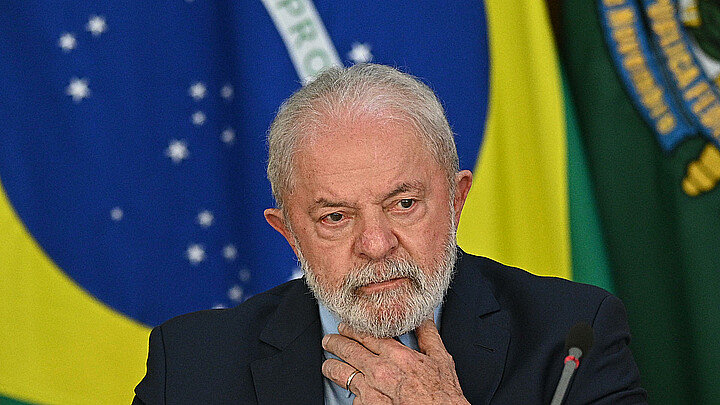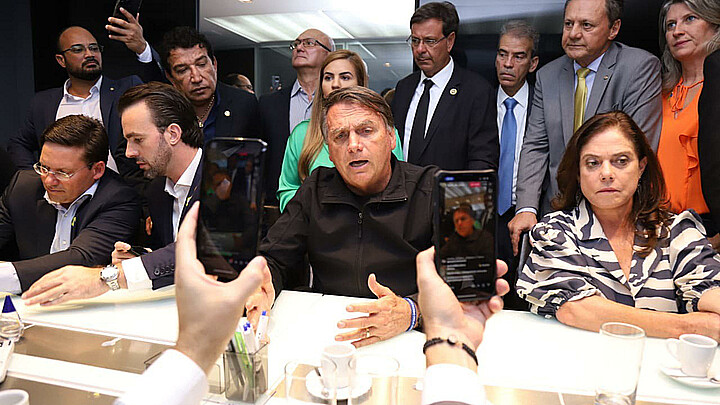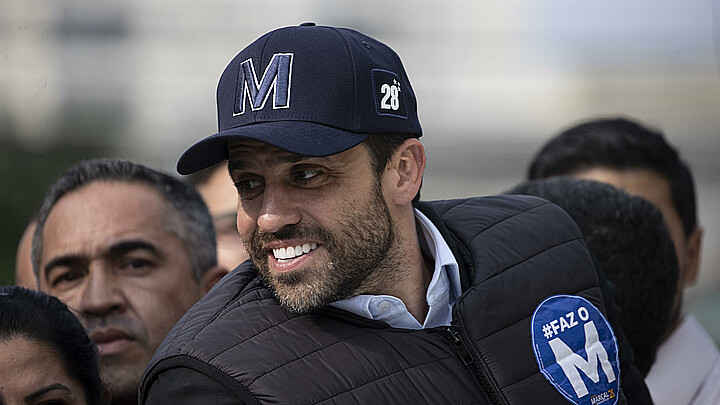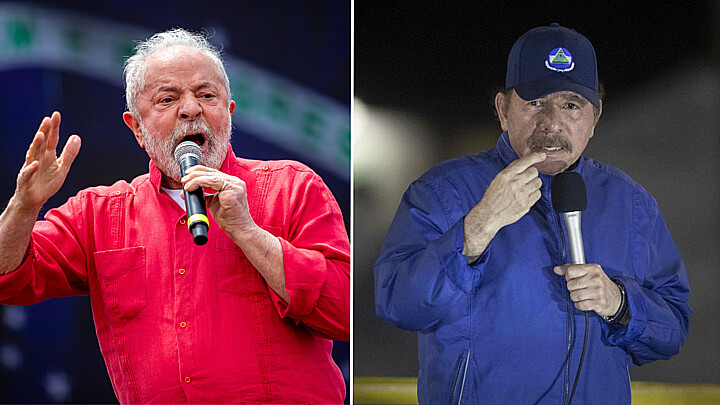Politics
To save the farming industry, Brazil's president fights to maintain relations with Russia
Brazil is notoriously dependent on imported fertilizer and imports about 85% of its fertilizers from abroad – with approximately 20% of the total imports coming from Russia
March 7, 2022 11:52am
Updated: March 7, 2022 12:48pm
Shortly before Russian forces invaded Ukraine on Feb. 24, Brazilian President Jair Bolsonaro defied his advisors and allies and flew to Moscow to meet with Russian President Vladimir Putin, declaring that his nation stood in “solidarity” with Russia. Putin, in turn, named Brazil as Russia’s most important Latin American partner.
“We are in solidarity with Russia,” Bolsonaro told Putin. “We very much want to collaborate in many areas — defense, oil and gas, agriculture. The meetings are happening.”
Since then, the Brazilian delegation at the UN Security Council voted to denounce Russia’s invasion of its southern neighbor, but Bolsonaro maintained a position of “neutrality.”
"We will not take sides, we will continue being neutral, and help with whatever is possible," Bolsonaro said. "A big part of Ukraine's population speaks Russian."
Yet Bolsonaro’s refusal to fully cut ties with Russia has been copied by leaders across Latin America.
When the UN General Assembly overwhelmingly voted to condemn Russia’s invasion of Ukraine, Putin’s closest allies in the region -- Bolivia, Cuba, El Salvador, Nicaragua – abstained instead of voting for the measure.
Venezuela may have joined Russia, Belarus, Eritrea, North Korea and Syria in voting against the resolution, but they currently do not have voting rights within the body.
In a statement last week, however, dictator Nicolas Maduro denounced U.S. sanctions as a “crime” against the Russian people and said that Putin gave off an aura of “serenity, wisdom and moral conviction” in a conversation the two had recently held.
Mexico, like Brazil, also voted to condemn Russia at the UN, but President Andrés Manuel López Obrador said last week that Mexico will not issue economic sanctions against Russia “because we want to maintain good relations with all the governments of the world and want to be able to talk to the parties in the conflict,” the Los Angeles Times reported.
But is Bolsonaro’s desire to preserve his friendly relationship with the Kremlin ideological or based on a desire to preserve a key trade partner?
Brazilian farmers were already facing a fertilizer shortage, but pressure to find new suppliers is growing as the Kremlin’s illegal war in Ukraine threatens to cut off shipments to the world’s largest producer of coffee, soybeans and sugar.
Although Brazil is one of the world’s most important food producers, it is also notoriously dependent on imported fertilizer and imports about 85% of its fertilizers from abroad – with approximately 20% of the total imports coming from Russia, The Wall Street Journal reported.
This is a worrisome figure considering the Russian trade ministry has called for a broad suspension of fertilizer exports.
"Brazil depends on fertilizers…it’s a sacred question for us," Bolsonaro told reporters last week after being pressed about his decision to maintain friendly relations with Moscow.
Bolsonaro’s concerns are well founded as rising fertilizer prices could make it impossible for Brazilian farmers to hit their output targets, potentially driving up global food prices.
Brazil is, after all, one of the world’s biggest corn, soy and beef producers. Higher grain prices increase animal-feed costs, which ultimately means customers will have to pay more for at the grocery store. The poor in Latin America, still struggling after the pandemic devastated the global economy, could be hit the hardest.
"No one knows what’s going to happen," said Ricardo Arioli, a soybean farmer from Brazil’s center-west state of Mato Grosso. "War means a total lack of certainty. The cost of production becomes a big unknown," he said.
Although the Brazilian government has said it has enough fertilizer stocks to last farmers until October, not everyone is so optimistic and The Brazilian National Fertilizer Association has warned that local fertilizer stocks will only last for another three months.
"We are now experiencing firsthand what it means to depend on imported fertilizer," said Jeferson Souza, a fertilizer analyst at Agrinvest Commodities, a brokerage in Brazil. Sluggish productivity has kept Brazil from developing a bigger domestic fertilizer industry, he said.
Brazilian Agriculture Minister Tereza Cristina Dias said she was planning to travel to -- the world’s largest producer of potash fertilizers -- this month to secure more supplies and the government said it would launch a national fertilizer plan to stimulate investment in potash and phosphorus mines.
But many farmers are worried that the steps being taken amount to too little, too late.
"Brazil has the technology to produce," said Antonio Galvan, a farmer and head of Brazil’s Soybean Producers Association. "Now with these embargoes, the price of fertilizers could go up so much that it’s not even worth planting."










